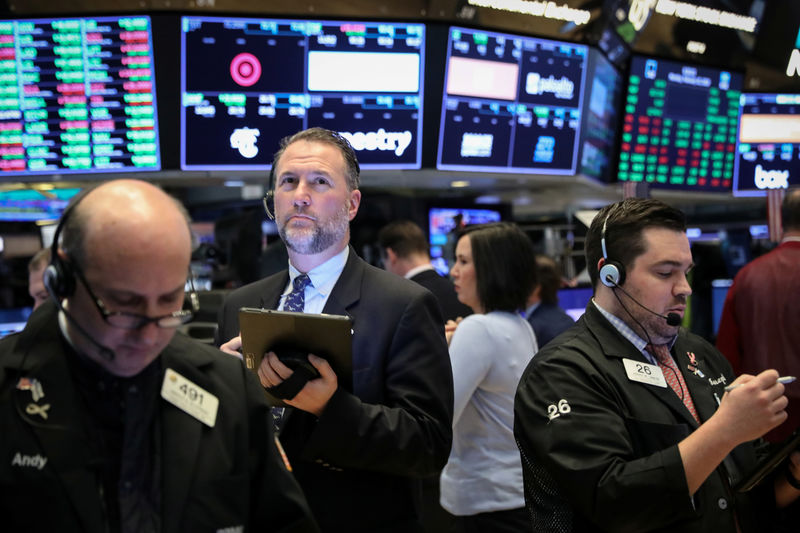By Geoffrey Smith
Investing.com -- The dollar ends the week on a low note and crude oil on a high note. An M&A flurry in Europe creates Spain's biggest bank and sees Apollo eyeing a repeat of its turnaround of LyondellBasell. Stocks are set to open mixed, ahead of the Michigan Consumer Sentiment survey, with the mood supported by another blowout IPO. Here's what you need to know in financial markets on Friday, September 18th.
1. Dollar resumes decline; gold rises
The dollar resumed its downward trend amid concern over the outlook for the U.S. economy and the risk that a weakening stock market may feed through into lower global demand for U.S. financial assets.
By 6:40 AM ET (1040 GMT), the dollar index that tracks the greenback against a half dozen other currencies was down 0.1% at 92.90, on course to end the week around 0.5% lower. Gold Futures, often a mirror image of the dollar, rose 0.6% to $1,962.05 an ounce.
Sterling and the yen both continued their recent advances; the former lifted by better-than-expected retail sales data for August and by upbeat comments on the post-Brexit transition by European Commission President Ursula von der Leyen, and the latter by declining political uncertainty after the appointment of Yashihide Suga as Prime Minister of Japan.
The Chinese yuan also posted its highest weekly close against the dollar since May 2019.
2. Michigan Consumer Sentiment rounds off heavy data week
A heavy week for economic data in the U.S. ends with the University of Michigan’s survey of consumer sentiment, which also includes a survey of inflation expectations.
The figures round off a week that has seen a sharp slowdown in retail sales and industrial output growth in August, along with what is likely to have been a temporary, hurricane-related setback for the housing market.
Analysts expect the main consumer sentiment index to have risen to 75 from 74.1 a month earlier.
Overnight, in addition to U.K. retail sales numbers, German producer price inflation and Italian industrial production also turned out marginally more positive than expected.
3. Stocks set to open mixed; Unity supports tech stock confidence
U.S. stock markets are expected to open mixed, amid ongoing concerns about tech stock valuations despite pockets of considerable strength, especially in the primary market.
Sentiment will be helped by another strong IPO, this time from video games maker Unity, which priced its offering above a marketing range that had already been raised at short notice. That follows the blowout offering from Snowflake (NYSE:SNOW) earlier in the week.
By 6:40 AM ET, the Dow futures contract was down 36 points or 0.1%, while the S&P 500 Futures contract was up 0.1% and the Nasdaq 100 futures contract was up 0.4%.
Stocks likely to be in focus later include Apollo Global Management (NYSE:APO), which is reportedly eyeing an investment in German chemicals group Covestro (OTC:COVTY). The TikTok saga also rolls on, with its implications for Oracle (NYSE:ORCL) and Walmart (NYSE:WMT).
4. CaixaBank, LSE leads Europe M&A flurry
Two of Spain’s largest banks agreed to merge, in a deal that will create the country’s biggest lender.
Caixabank (OTC:CAIXY) and Bankia (OTC:BNKXF), both heavily domestic-focused institutions, will carry out an all-stock deal that should strengthen their joint balance sheet as Spain faces a new wave of bad loans as a result of the Covid-19 pandemic.
Elsewhere in Europe, London Stock Exchange Group (LON:LSE) moved closer to clinching antitrust approval for its planned acquisition of data provider Refinitiv by entering into exclusive talks with Euronext (PA:ENX) for the sale of Italian stock exchange operator Borsa Italiana.
5. Saudi Arabia talks up oil prices
Crude oil prices are ending the week on a high note after Saudi Arabia’s oil minister sent a strongly-worded warning to markets at Thursday’s meeting of ministers from the so-called OPEC+ bloc.
By 6:40, U.S. crude futures were up 0.5% at $41.15 a barrel, on course for a weekly gain of nearly 9%. Brent crude was up 0.7% at $43.59 a barrel.
Prince Abdulaziz bin Salman warned ‘speculators’ not to ‘test the resolve’ of the bloc by trying to push prices any lower. He also dished out strong criticism of countries within the bloc who had produced above their quotas.
The United Arab Emirates, which wasn’t named directly, has already said it will cut export volumes to key Asian markets for the next two months in an effort to placate the group’s most powerful member.
